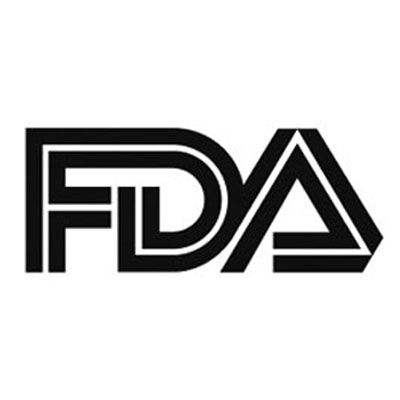FDA Grants Fast Track Designations in Merkel Cell Carcinoma, Cutaneous Squamous Cell Carcinoma
The FDA granted 2 Fast Track designations to the cavrotolimod for 2, including in combination with anti-PD-1 therapy in patients with locally advanced or metastatic Merkel cell carcinoma who are refractory to prior anti-PD-1 blockade and in combination with anti-PD-1/PD-L1 in patients with locally advanced or metastatic cutaneous squamous cell carcinoma who are refractory to prior anti-PD-1/PD-L1 blockade.

The FDA has granted 2 Fast Track designations to cavrotolimod (AST-008) for 2 development programs, including in combination use with anti-PD-1 therapy in patients with locally advanced or metastatic Merkel cell carcinoma (MCC) who are refractory to prior anti-PD-1 blockade and in combination use with anti-PD-1/PD-L1 in patients with locally advanced or metastatic cutaneous squamous cell carcinoma (CSCC) who are refractory to prior anti-PD-1/PD-L1 blockade.
This agent is a spherical nucleic acid toll-like receptor 9 (TLR9) agonist that has been designed to robustly activate a patient’s innate and adaptive immune system in order to potentially induce potent anti-cancer immune responses. Cavrotolimod was evaluated in a phase 1b clinical trial, which was designed to evaluate the safety, tolerability, pharmacokinetics, pharmacodynamics, and preliminary efficacy in the dose-escalation stage.
The open-label multicenter study evaluated intratumoral cavrotolimod injections alone and in combination with intravenous pembrolizumab (Keytruda) in patients with advanced solid tumors, including those with advanced or metastatic MCC, head and neck squamous cell carcinoma, CSCC, melanoma, and leiomyosarcoma.
“These Fast Track designations underscore the pressing need to develop new therapies to treat refractory non-melanoma skin cancers as well as the promising preclinical and initial clinical results of cavrotolimod in patients with locally advanced or metastatic Merkel cell carcinoma and cutaneous squamous cell carcinoma," said Shailender Bhatia, MD, associate professor at University of Washington/Fred Hutchinson Cancer Research Center and principal investigator in the phase 1b/2 clinical trial of cavrotolimod, in a statement.
The trial showed that the confirmed objective response rate (ORR) was 21% across all doses, which included 1 complete response and 3 partial responses. The confirmed ORR was 33% among those who received the highest dose of cavrotolimod at 32 mg, which was selected as the recommended phase 2 dose.
Overall responses were observed in 2 patients with advanced MCC, as well as 2 patients with melanoma, and 3 of the 4 responders were progressing on a prior anti-PD-1 at the time of enrollment to the study. The responses were durable and ongoing, and all 4 responders had progression-free survival exceeding 6 months while exceeding 16 months for 2 responders.
One patient with CSCC and 2 with melanoma had target tumor shrinkage. There were no treatment-related serious adverse events or dose-limiting toxicities with this therapy.
“I am encouraged by the Phase 1b dose-escalation results and excited about the potential of cavrotolimod to address the significant unmet need facing these patients," stated Michael Wong, MD, PhD, professor at MD Anderson Cancer Center and principal investigator in the phase 1b/2 clinical trial of cavrotolimod.
Investigators noted increases in leukocytes in injected tumors who received cavrotolimod alone and in combination with pembrolizumab compared with baseline, and noninjected tumors had increased immune cells after receiving cavrotolimod plus pembrolizumab. Dose-dependent activation of key immune cells was observed, including cytotoxic T cells and natural killer cells, as well as increases in cytokine/chemokine levels in the blood after treatment.
Systemic effects were observed as well in the study, with regression in noninjected tumors distant from injected lesions, and the cavrotolimod pharmacodynamic profile corroborated the efficacy data while increased serum cytokines/chemokines activated immune cells, and tumor infiltration immune cells were observed in the study.
“There is an urgent need to investigate novel immunotherapeutic agents such as cavrotolimod that can be given to enhance the clinical efficacy of immunotherapy, particularly in patients with refractory solid tumors," said Adil Daud, MD, clinical professor at UCSF Helen Diller Family Comprehensive Cancer Center and principal investigator in the phase 1b/2 clinical trial of cavrotolimod, in a statement.
Reference
Exicure granted two Fast Track designations for Cavrotolimod (AST-008) from the US Food and Drug Administration. News Release. Exicure, Inc. January 11, 2021. Accessed January 12, 2021. https://bit.ly/2LGqF6H
Atlas Examines Tolerability of Hedgehog Pathway Inhibitors and Transition to IO in mBCC
October 16th 2024During a Case-Based Roundtable® event, Jennifer L. Atlas, MD, discussed treatment for a patient with basal cell carcinoma who reported challenging adverse events with hedgehog pathway inhibitor.
Read More
Tawbi Discusses the Role of Brain Metastases and PD-L1 Status in Melanoma
September 11th 2024During a Case-Based Roundtable® event, Hussein A. Tawbi, MD, PhD, and participants look at benefits of nivolumab combinations for brain metastases and PD-L1 positivity in the metastatic melanoma population in the second article of a 2-part series.
Read More








